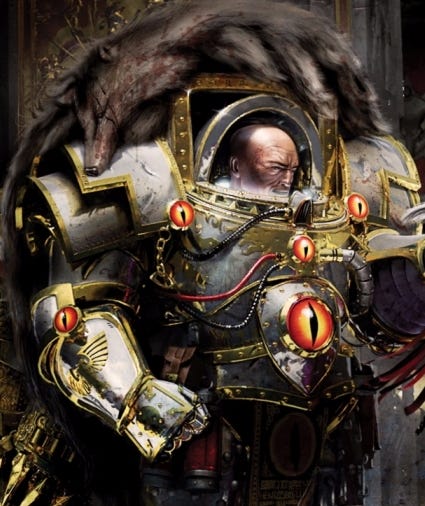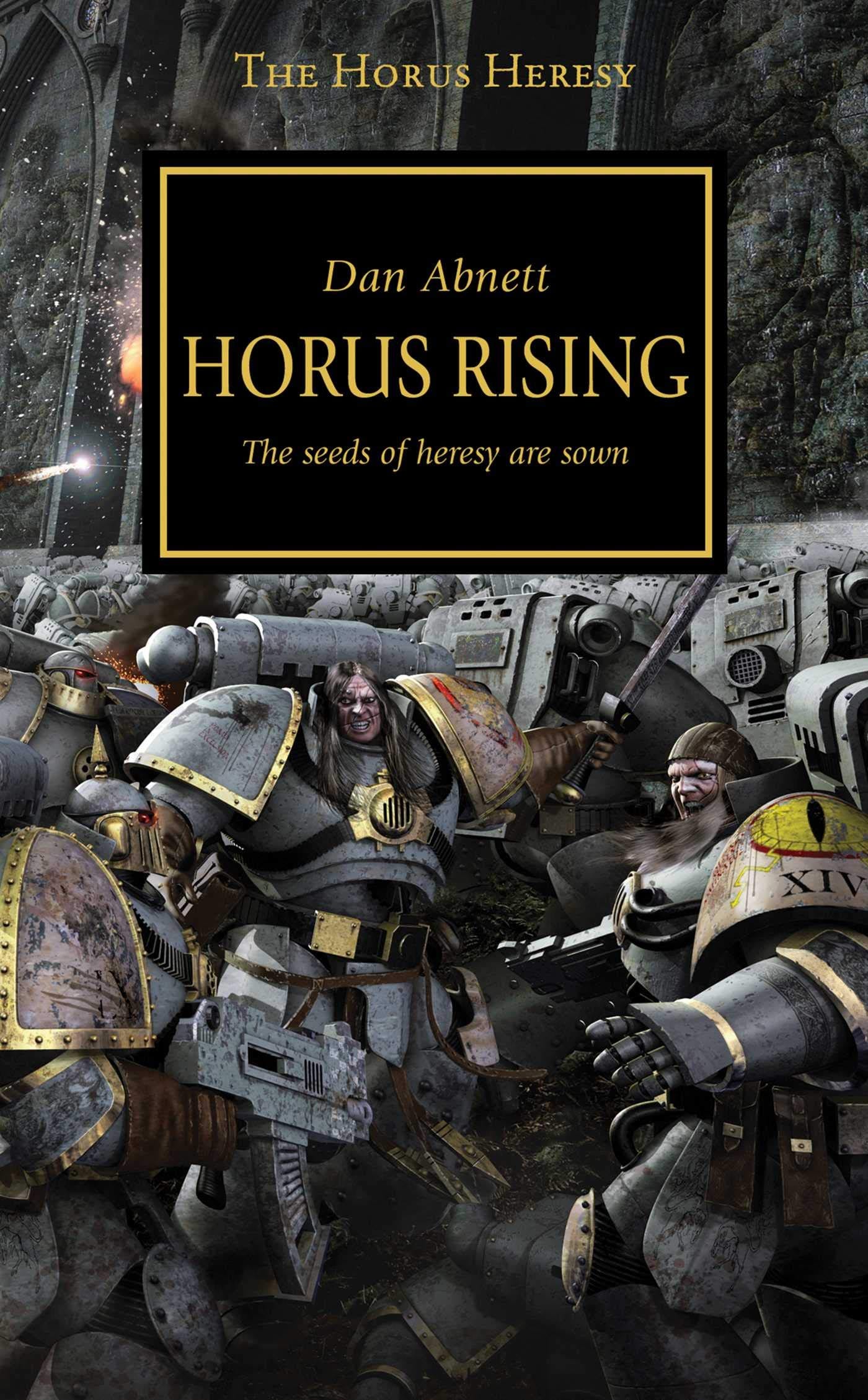Science Fiction Review: Horus Rising
In the enlightened optimism of the 31st Millennium
“I know that words cannot move mountains, but they can move the multitude - we've proven that time and time again. People are more ready to fight and die for a word than for anything else. Words shape thought, stir feeling, and force action. They kill and revive, corrupt and cure.”
This will be an interesting review to try and couch for different audiences correctly, but I’m going to give it a go. I’ve been a Warhammer 40k enjoyer for well over a decade at this point. PC Games, books, traditional tabletop models, you name it. There are many ways to partake in the Warhammer Fantasy/40k universe, and it’s one of my favorite IP’s right alongside Mechwarrior and Starsiege.
“It is the 41st Millenium. In the grim darkness of the far future, there is only war.” may be the tag line of Warhammer 40k, but Horus Rising is the first book of the Horus Heresy prequels which start in the 31st millennium instead. It took me way too long to start this series. Horus Rising came out in 2018, and there has been a plethora of books in the series by a variety of authors.
For the uninitiated, Warhammer 40k takes place in a cruel and dangerous universe. The Imperium of Man survives only through a hard headed ignorance and their faith in the immortal God Emperor of Mankind, mortally wounded in a battle with his favored son, interred on life support in his Golden Throne. In 40k, veneration of the Emperor is central to every aspect of Imperial life. The central irony of this is the Emperor demanded not to be worshipped as a god, and spent thousands of years scouring every aspect of religiosity from humankind in the name of “Science, Logic, and Reason”. The Emperor was essentially a superhuman “I Fucking Love Science” moderator while he was still able to walk among the stars. This fan animation is fantastic, showing the dialogue between the Emperor and the last priest of the last church on Terra before its destruction, which explains the Emperors ideology on the matter.
“Great actions have shaped our society.’ Sindermann said. The greatest of these, physically, has been the Emperor's formal and complete unification of Terra, the outward sequel to which, this Great Crusade, we are now engaged upon. But the greatest, intellectually, has been our casting off of that heavy mantle called religion. Religion damned our species for thousands of years, from the lowest superstition to the highest conclaves of spiritual faith. It drove us to madness, to war,
to murder, it hung upon us like a disease, like a shackle ball. I'll tell you what religion was... No, you tell me. You, there?'
'Ignorance, sir.’
Thank you, Khanna. Ignorance. Since the earliest times, our species has striven to understand the workings of the cosmos, and where that understanding has failed, or fallen short, we have filled in the gaps, plastered over the discrepancies, with blind faith. Why does the sun go round the sky? I don't know, so I will attribute it to the efforts of a sun god with a golden chariot. Why do people die? I can't say, but I will choose to believe it is the murky business of a reaper who carries souls to some afterworld.”
And thus what is fascinating about Horus Rising is it shows a very different Imperium. One with artists, culture, no Sororitas or Ministorum. No commissars or executions, no inquisitors or an Imperial Creed. The people of this Imperium have a much wider pool of general knowledge, the freedom to have a bit more personality, and an optimistic outlook for the future. The Imperiums of the 31st and 41st millennium both have their problems, problems of extremes. The former succumbing to corruption and the latter languishing in ignorance.
The cult that worships the Emperor operates in secret, as the Emperor still walks the earth and has decreed that he is not a god nor is he to be worshipped as such. The cult disregards him at their own peril, stating “Only the divine would reject divinity” and risking mockery and punishment by society at large. 10,000 years later, the shoe is on the other foot as the emperor lies mute within his life support system.
The “Great Crusade” is in full swing, with the soldiers of the Emperor mounting expeditions to crush xenos, but primarily to reintegrate the lost breakaway civilizations of humanity among the stars. At the time of Horus Rising, we’re seeing the tail end of an optimistic and prosperous age of exploration, right as the Emperor returns to Terra and entrusts the crusade to his favored son, Horus, and fatigue from so many years of war begins to dim the optimism of its veterans.
I also really want to recommend the audiobook version for those who prefer to listen instead of read. Toby Longworth is one of the most talented voice actors out there, encapsulating so many different distinct voices with clarity and somehow never blending them together. Horus Rising makes for very satisfying solitary listening on the road or in your earbuds. I’m purposely stopping myself from elaborating further on the basis that some readers may not be familiar with the potential spoilers, but I really recommend this book if you’re a 40k fan who hasn’t read it, or someone uninitiated who wants to jump in at the chronological beginning.




Great post. The 40k universe is such a fantastic construction: the key features of its foundation are so reactionary that it always survives bad writers and progressive influences:
That this is a fallen universe, in which war is eternal.
That faith is indispensable in the face of horror.
That man longs to worship that which is greater than he is.
That the forces of chaos are unleashed by man's overindulgence in his most base appetites.
That only through conflict can the most heroic men emerge - the Astartes.
That one must have unwavering loyalty to one's own - humanity over xenos.
Eisenhorn is the series I always recommend to beginners. Abnett is a genuinely gifted author.
Optimistic warhammer 40k fiction seems like an oxymoron! Interesting to see what, if any, joy can be found in a setting doomed like the human empire in the 31st millennium. The youtube series "If the emperor had a text to speech device" was great, partially because the idea that the emperor could literally start talking and the unstoppable momentum of the imperial bureaucracy would barely notice is believable, and funny as it is interesting.